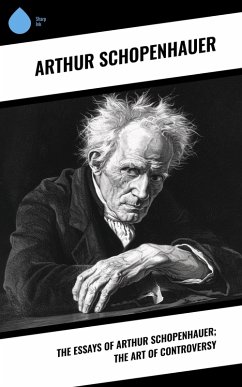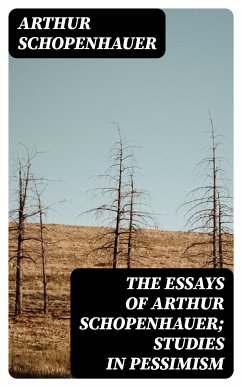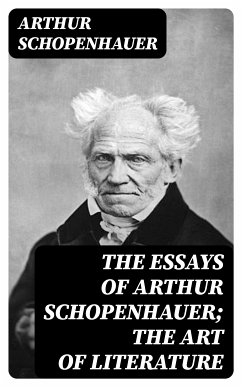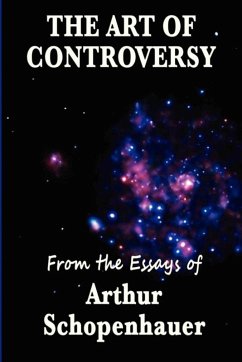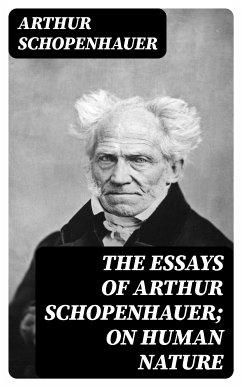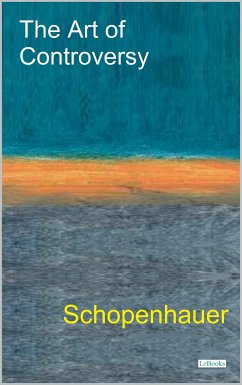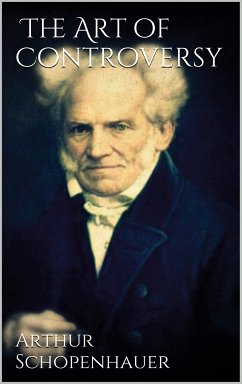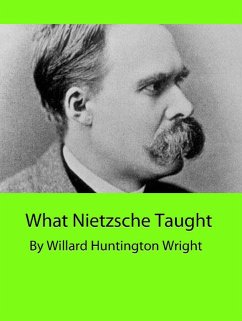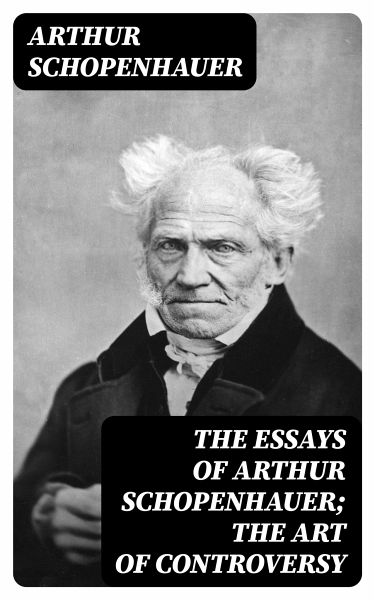
The Essays of Arthur Schopenhauer; the Art of Controversy (eBook, ePUB)
Versandkostenfrei!
Sofort per Download lieferbar
1,99 €
inkl. MwSt.
Weitere Ausgaben:

PAYBACK Punkte
0 °P sammeln!
In "The Essays of Arthur Schopenhauer: The Art of Controversy," Schopenhauer meticulously examines the nature of debate, rhetoric, and intellectual discourse, employing his characteristic wit and incisive prose. The work is a blend of philosophical inquiry and practical advice, exploring how arguments are constructed and deconstructed. Schopenhauer's literary style is marked by his penetrating insights and an often sardonic tone, reflecting the influence of German Romanticism and his profound skepticism. His exploration extends beyond mere logical argumentation, probing into the psychological ...
In "The Essays of Arthur Schopenhauer: The Art of Controversy," Schopenhauer meticulously examines the nature of debate, rhetoric, and intellectual discourse, employing his characteristic wit and incisive prose. The work is a blend of philosophical inquiry and practical advice, exploring how arguments are constructed and deconstructed. Schopenhauer's literary style is marked by his penetrating insights and an often sardonic tone, reflecting the influence of German Romanticism and his profound skepticism. His exploration extends beyond mere logical argumentation, probing into the psychological aspects of human interaction and conflict, offering timeless strategies for persuasion that remain relevant across centuries. Arthur Schopenhauer, a pivotal figure in 19th-century philosophy, is often hailed as a precursor to existentialism and psychoanalysis. His life experiences-marked by tumultuous relationships and a penchant for solitude-shaped his philosophical outlook, emphasizing the often irrational nature of human desires and conflicts. Schopenhauer's background in metaphysics and aesthetics enriches his essays, providing a unique perspective on the art of contention, further enhancing the reader's understanding of his work. This compelling collection is an essential read for anyone interested in the dynamics of human interaction and the philosophical underpinnings of argumentation. Schopenhauer's insights are not only intellectually stimulating but also practically applicable, making it a valuable resource for scholars, students, and anyone seeking to navigate the complexities of discourse with greater acumen.
Dieser Download kann aus rechtlichen Gründen nur mit Rechnungsadresse in A, B, BG, CY, CZ, D, DK, EW, E, FIN, F, GR, H, IRL, I, LT, L, LR, M, NL, PL, P, R, S, SLO, SK ausgeliefert werden.




